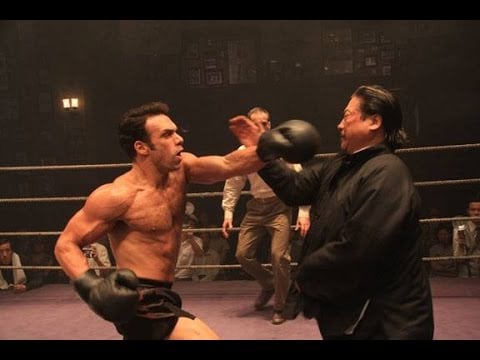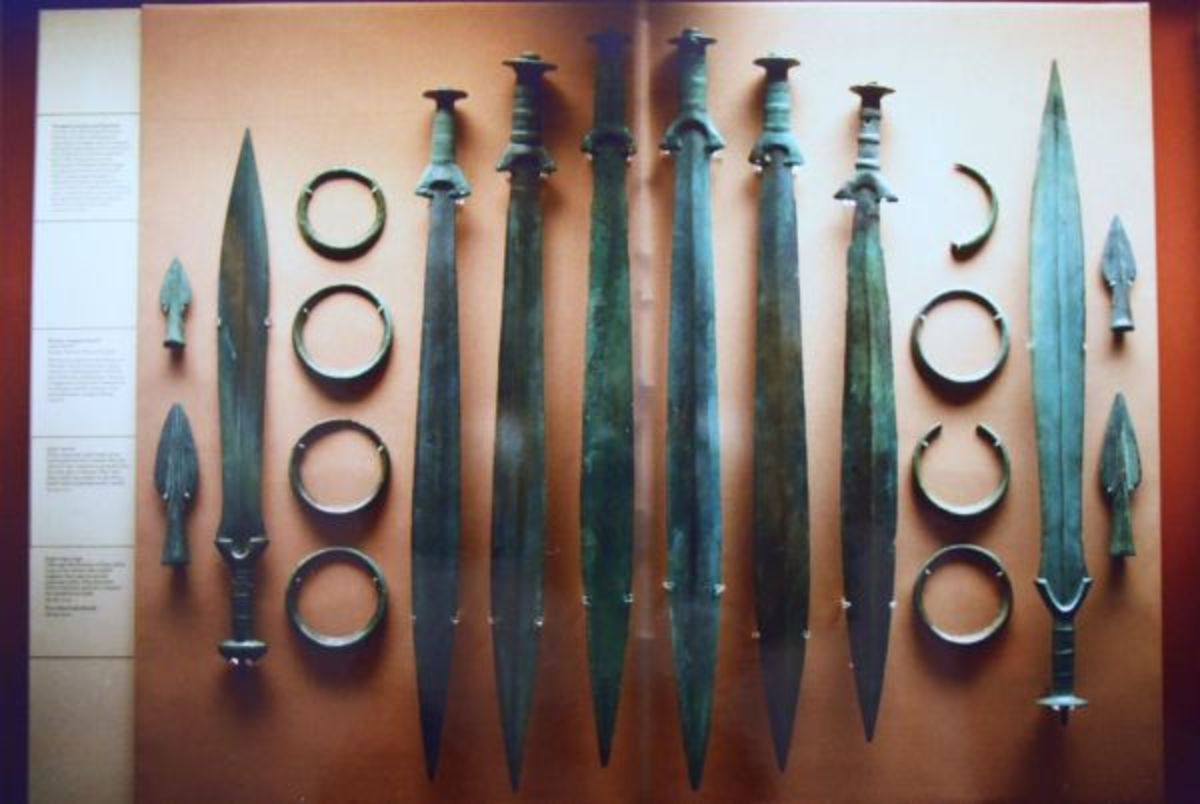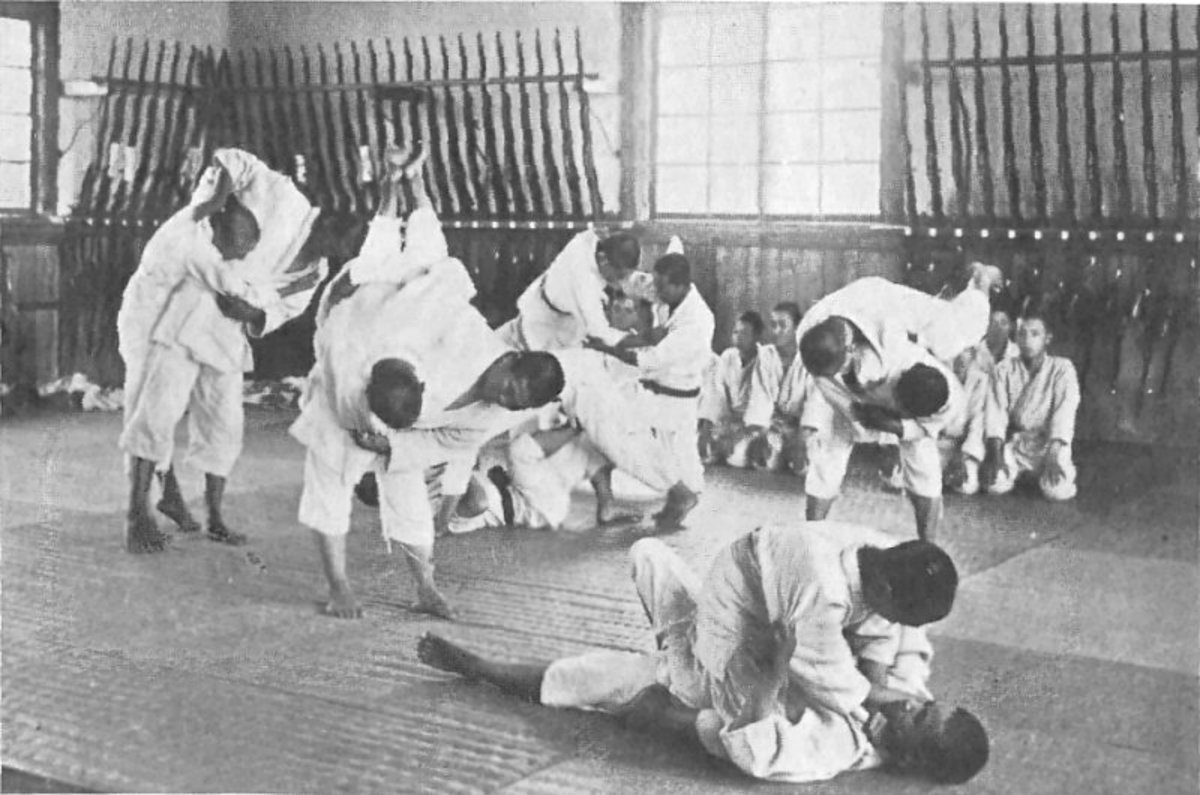- HubPages»
- Sports and Recreation»
- Individual Sports»
- Martial Arts
Chinese Martial Arts and Cultural Legacy: How the Two Are Linked and How We Underestimate it
It sounds like the plot to an old school, kung fu movie.
In April, a Chinese MMA fighter named Xu Xiaodong, challenged a Tai Chi master named Wei Lei. The purpose was to establish through combat whether his traditional martial art form could stand up to modern mixed martial arts. Lei accepted and the debate was settled in less than a minute as Xiaodong pretty much destroyed the traditional master. I don’t say that out of disrespect to Wei Lei, but as an objective statement of what actually happened. The fight lasted maybe ten seconds at the most.
For westerners, this result comes as no surprise and means little in the grand scheme of things. However, in China the beating was a much bigger deal. Xu Xiaodong has had to go into hiding since the fight because of the collective outrage from his fellow countrymen, accusing him of disrespecting his own culture. What I find interesting isn’t the fight itself or the outcome, but the underlying tensions and faults that it exposed to the Chinese themselves.

Context
Mixed martial arts as a blending of different styles is nothing new in and of itself, but the modern version’s founding is credited to Bruce Lee. Besides being an action star, Bruce was first and foremost a dedicated martial artist and philosopher. He had taken the traditional style of wing chun, western boxing, had gotten in street fights while staying in China, and developed his own style, Jeet Kun Do years later based those experiences.
More of a philosophy than an actual style, Jeet Kun Do applied the maxim, “apply what is useful, discard what is not”. In actual fighting application, it was more free form, being adaptable to an individual’s personal style, while focused on being on the offensive, even when defensive. Stances and katas were not necessary and most importantly, it was about doing whatever it took to win.
However this methodology didn’t truly take off until MMA grew in popularity during the 1990’s through the rise of UFC underground fights. It threw together different styles in cage fights and more often than not, the more adaptable fighters won out. Many traditional blackbelts and even some western styles too, failed because their techniques did not allow them to adapt to something different from their training.
Since that time, it has generally been an accepted truth in the west and some other Asian countries that MMA’s adaptability will beat out TMA’s stagnation, short of a death match in which there really won’t be rules. However, China has been very slow to accept these perceptions and the reason lies in its history and how it has come to define martial arts overall.

Forged Under Pressure
China has a long history of developing some of the most enduring fighting styles in the world. However it also has an equally, long history of being dominated by outsiders: from the Mongols, to the Manchu, and more recently, the Western powers and Japan. Centuries of prolong subjugation under others’ thumb has produced a higher than normal bias to all things native Chinese, as a defense and coping mechanism. As China has developed over the 20th century, its fighting heritage became an integral part of their identity as a nation and how others saw and respected them. Martial arts were not just about fighting and killing, but also about identity, dignity, and control in the face of adversity. This view has at times put native styles in conflict with other traditional styles, particularly Japanese, for obvious reasons of course. Establishing the superiority of their styles over others were cultural benchmarks that made Chinese people proud to be Chinese.
The issue many of them take with MMA is multi-fold. There is the factor that MMA lacks lineage of dignity and identity forged in struggle against outside powers trying to quash cultural identity. There is also the fear that allowing adaptation into their traditional forms will some how dilute them and by extension, the culture itself. Then of course, there is MMA’s naked brutality and lastly, how MMA and the west see martial arts in an entirely different light than Chinese fighters.
" ...traditional martial arts is to Chinese culture as gospel and soul food is to American Black culture, or Catholic rituals is to traditional, Italian culture"
The Rule of Power
MMA and other western styles do not have the long cultural experience that Chinese styles do. Therefore our definition of it will be different. Overall martial arts are viewed as a means to an end: that end being victory. If we can’t stand with our hands held high, then what was the point? Even Bruce Lee, proudly Chinese as he was, demonstrates this philosophy with his approach to martial arts and fighting: practicality. Chinese practitioners may find meaning in the legacy of their fluidity and forms, but westerners find meaning in the power and the results it accomplishes. Martial arts isn’t about cultural identity or pride, but another tool to be used by the individual to achieve what they want.
Ironically, it is a Chinese movie, IP Man 2, that accurately demonstrates this dichotomy. There is a scene where some wing chun students are demonstrating their forms to a multi-national crowd inside a boxing ring. Westerners in the crowd seem both amused and baffled by the display, while the natives clap in pride at the display of their heritage. In comes a boxing champion named Twister, who is also befuddled by the demonstration and mockingly refers to it as “dancing”.
Having had enough, he arrogantly enters the ring and challenges the lead demonstrator to strike him with all he’s got. At first, the leader throws a punch and stops short of contact to demonstrate his potential power, but Twister is unimpressed. He presses him, demanding the Chinese to hit him and prove his power. When the leader finally does, Twister is unphased and laughs in his face before a fight eventually breaks out.
More than any martial arts movie I have seen, Ip Man 2 deliberately captures what fighting means to both western and Chinese culture and how profoundly different it is. To put it metaphorically, traditional martial arts is to Chinese culture as gospel and soul food is to American Black culture, or Catholic rituals is to traditional, Italian culture. It is a symbol not just of the culture itself, but a time when their identity was being threatened with extinction and its people tried to preserve as much of it as they could.

Traitor
The reason why Xu’s fight with Wei was so upsetting to the Chinese was because this time it was not an outsider who was threatening the dignity and struggle of past generations: it was one of their own.
That fact alone is what made the defeat so stinging and turned so many Chinese into apologists for Wei’s, and by extension, Tai Chi’s defeat. Had Xu been anybody else other than Chinese, the loss could be easily excused as another example of outsiders’ disrespect of Chinese heritage and thus easily shrugged off. I think this is what both Xu and we in the West underestimated.
The hold that traditional martial arts have over its parent cultures is its power in identity and legacy. Identity can survive without power until such a time as power is regained. Legacy is eternal and will always be remembered regardless of the physical realities. Power for the sake of power though, is a dead end street. Once it’s gone, so is its user. Many in China are adapting and trying to balance out these two perspectives of martial arts, such as Bruce lee decades ago and now Donnie Yen. But as long as there is a continuing misperception of what and why each side views martial arts, Chinese TMA practitioners will always be dogged by comparison to its younger peer and those who admire it.









